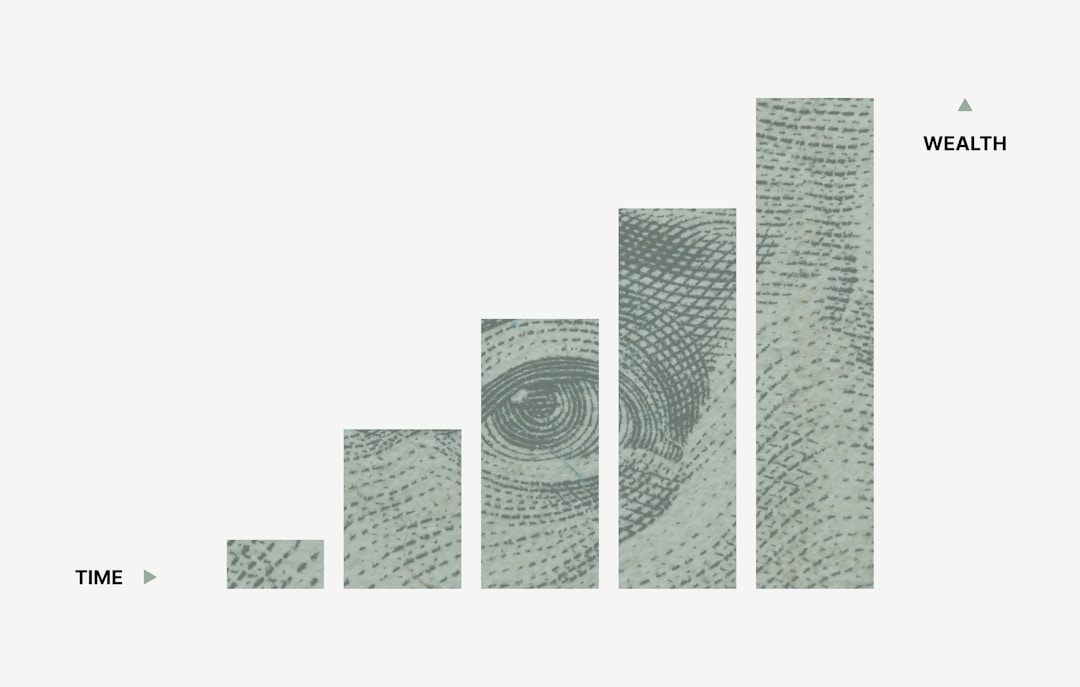8 in 10 Brits are concerned that the wealthy don’t contribute their fair share of taxes
18 MAY 2023
75% of people (including 72% of 2019 Tory voters) are concerned that people with net wealth of £10m or more have too much influence on the political system
69% of people are concerned that some people in the UK are this wealthy while others live in poverty, and 65% about unequal opportunities to accumulate wealth
68% of people (including 64% of 2019 Tory voters) think the government should be doing more to tax high net worth individuals (those with £10m or more)
Asked about sources of wealth, people are most positive about entrepreneurs, followed by landlords, and most negative about city traders and old-money heirs

Media coverage
Contents
Setting the scene How do different sources of wealth affect attitudes to it? Views about high net worth individuals Perceptions and preferences about inequality Understanding why people think what they think Methodology Expert commentary What the existing research tells us Explore the context
Setting the scene
Wealth inequality is twice as high as income inequality. The richest fifth of the population own 63% of the country’s wealth; the poorest fifth own 0.6%. Men have 40% more wealth than women. White households are four times more likely to have more than £500,000 in wealth than black African households.
Total net household wealth as a share of national income has roughly doubled in the last thirty years. Most increases in wealth over recent decades have been ‘passive’ (driven by increases in the asset values of existing wealth) rather than ‘active’ (due to saving or other activities suggesting the application of talent through hard work). Inheritances play an increasingly important role in determining life chances and outcomes.
Wealth inequality is a barrier to the achievement of all five of the fair necessities. It allows poverty to reach unacceptable levels, undermining fair essentials. It leads to educational and job market inequalities, undermining fair opportunities. It undervalues many forms of work, undermining the social contract and fair rewards. If not properly taxed, it weakens public services, undermining fair exchange. And it leads to egregious inequalities across class, racial, gender, regional and generational divides across every aspect of our society and economy – from democracy and the environment to housing, health and criminal justice – undermining fair treatment.
For all of the debate about economic growth, there isn’t a shortage of wealth in Britain; if anything, there is a surplus. But it is very unevenly distributed.
What do people in Britain think about wealth inequality in the context of fairness?
There is plenty of research to suggest that views are complex and nuanced. People are concerned about the causes and consequences of wealth inequality - as well as income inequality and other forms of inequality that are interdependent, such as racial, gender and regional inequality. But at the same time, many people believe that we live in a meritocratic society, and that success (and therefore wealth) owes more to individual factors, such as hard work, than to structural factors, such as barriers to opportunity. And people see wealth as aspirational, in part because it can provide security for them and their families in an insecure (and unequal) world.
We set out to explore two questions that have received less attention. Firstly, how much do attitudes vary based on the source of the wealth, and in particular whether it was earned through work or acquired in other ways (such as inheritance, or rent)? Secondly, what do people think about fairness in relation to people with net wealth of £10 million or more (high net worth individuals), and what might this mean for policy solutions such as taxes on wealth?
How do different sources of wealth affect attitudes to it?
We asked people for their views about seven different characters, each of which have accumulated £5 million in a different way. For each character, we asked five questions, each with two possible answers (below), and asked respondents to pick the answer they most agreed with in each case (or neither, if they were unsure).
Green bars show the percentage of respondents who agreed with the first statement, red bars the second (grey bars mean unsure). To reduce respondent fatigue, each respondent only answered questions about three of the seven characters, chosen at random.
Accumulating wealth in this way…
The new-money heir
…has inherited £5m from their parents, who had built up a successful business from scratch

‣
All breakdowns
The old-money heir
…has inherited £5m from their father, whose family has been wealthy for many generations

‣
All breakdowns
The landlord
…has accumulated £5m by building a large portfolio of rental properties over their lifetime

‣
All breakdowns
The entrepreneur
…has accumulated £5m by building a business from scratch and then selling it

‣
All breakdowns
The investor
…has accumulated £5m by extracting dividends from a hedge fund that they started up

‣
All breakdowns
The finance whizz
…has accumulated £5m by being paid large bonuses every year as a successful city trader

‣
All breakdowns
The sports star
…has accumulated £5m by being paid a large salary for 15 years as a footballer

‣
All breakdowns
Looking across all five questions, it’s clear that most people think that opportunities to make lots of money aren't evenly spread, and that many have achieved their wealth more through luck than by hard work.
This view holds for all characters with the exception of entrepreneurs, and to some extent landlords, both of whom are viewed more favourably by the public. Views about fairness and positive impact on society are split, while large numbers are unsure about taxation (although the issue of taxing wealth is examined in more detail in a separate question).
Comparing ‘net approval ratings’ for the seven characters, the entrepreneur comes out clearly ahead, scoring high in terms of having earned their wealth fairly (and more through hard work than luck) and their positive impact on society, although many people do not think that everyone has an equal chance to become one. The second most positively viewed character is the landlord, followed by the new-money heir and then the investor. Bringing up the rear are the sports star, the finance whizz and the old-money heir.
The differences between 2019 Conservative and Labour voters are not as large as might be expected. Conservative voters are often broadly in line with the national average.
However, where they do diverge, the differences are sometimes surprising. For example, for several characters, Conservative voters are more, rather than less, likely than the average respondent to believe that accumulating wealth in this way is only possible for some people in society.
Views about high net worth individuals
Most people are concerned that high net worth individuals (defined as people with net wealth of £10m or above) aren't paying enough taxes and have too much influence on politics. On these issues, Conservative voters are in lockstep with the general public. People are also worried about the socio-economic impacts of wealth inequality, in terms of both equal opportunities and equal outcomes.
‣
All breakdowns
When asked about the overall acceptability of people accumulating large amounts of wealth, most people place themselves somewhere towards the middle on a scale between two opposing views (red: it’s unacceptable, e.g. because it harms opportunities for others, and green: it’s acceptable, e.g. because it rewards and incentivises hard work).
‣
All breakdowns
Two in three respondents (including 64% of 2019 Tory voters) think that the government should being doing more to tax high net worth individuals. This question does not distinguish between taxes on income and taxes on wealth, or between the design of the tax system (rates, allowances etc) and its operation (such as cracking down on tax avoidance).
‣
All breakdowns
Perceptions and preferences about inequality
When asked about their perceptions about the shape of society in terms of inequality (without specifying whether this relates to the distribution of income, wealth or anything else), most people believe that we live in an unequal society with many people at or near the bottom.
‣
All breakdowns
When asked about their preferences about the shape of society in terms of inequality, most people would prefer the UK to be a society in which most people are in the middle, or near the top, with very few people at the bottom.
‣
All breakdowns
Most people think that ordinary people don't get their fair share of nation's wealth. Views about whether the government should redistribute income or raise taxes to spend more on health and social services are more split.
‣
All breakdowns
Understanding why people think what they think
We asked a ‘free text’ question asking people to explain their views about taxing high net worth individuals.
This word cloud shows the most frequent words used by respondents who thought taxes on this group should be lower or were already high enough.
This word cloud shows the most frequent words used by respondents who thought taxes on this group should be higher.
We also asked all respondents whether they wanted to record a video to share their views about the issues. We received 9 videos.
Methodology
The questions were designed in consultation with a range of organisations working on wealth and economic inequality, and with input from polling experts. Many of the questions link to one or more of our five Fair Necessities (essentials, opportunities, rewards, exchange and treatment).
Fieldwork was carried out by Opinium between 26 and 28 April, with a nationally representative sample of 2,053 adults across the UK, weighted to nationally representative criteria and various political criteria. The order of options presented in each question was randomised. Participants were shown an information box about wealth inequality in the UK halfway through the survey.
‣
About the information box
Expert commentary
This survey provides a detailed and informative overview of people’s attitudes to high wealth, including highlighting some of the complexities in those attitudes. For me, three points really stand out.
First, it is abundantly clear that the British public are not “intensely relaxed about people getting filthy rich”. Seven out of ten Brits are concerned about a society in which some have wealth of over £10m while others live in poverty. While there are inevitable political differences in answers to such questions, they are smaller than one might imagine: these concerns are shared by six in ten of those who voted Conservative in 2019, and eight in ten of those who voted Labour.
Primarily these concerns seem to be driven by a mix of unequal opportunities to achieve these high levels of wealth and the influence of money in politics. Completing the quote from Peter Mandelson, there is also a view across the political spectrum that the wealthy aren’t paying their share of taxes — a point to which I will return.
Second, attitudes to people with wealth are strongly shaped by opinions about whether that wealth is deserved. Deservingness is necessarily subjective, and framing matters a lot. Opinions about inherited wealth appear to differ widely depending on whether the recipient’s parents earned the wealth themselves – 49% said ‘accumulating wealth in this way is fair’ – or received it from their ancestors – only 32% said this was fair.
Opinions around fairness are also sometimes surprising. Almost twice as many people (53%) said it was fair for a landlord to accumulate wealth as for a city trader (29%). And this isn’t driven by anti-banker sentiment: the same is true for a footballer (33%). I find this particularly interesting, because bankers and footballers are likely to have built more of their wealth from saving income, while landlords have more often benefited from rises in house prices outside of their control. Surveys often suggest higher support for taxing unearned gains than wealth which come from savings. However, in this case building wealth from work appears to be seen as less ‘fair’ than building it from other wealth, or even from inheritance; perhaps this is because those high incomes are themselves seen as unfair.
Third, views on tax are surprisingly consistent. When asked comparatively how wealth should be taxed relative to work, slim majorities preferred wealth to be taxed more than work rather than being taxed less than work. But the clear majority in all cases was for wealth to be taxed neither more nor less heavily than work.
In line with the current tax privilege of income from wealth relative to income from work, almost seven in ten people thought more should be done to tax individuals with the highest levels of wealth. Only one in twenty thought they should be taxed less. For the latter group, the key worries were around mobility and people leaving, highlighting the need to ensure that taxes take into account how people will respond.
What does this mean for policy? I have previously written about the need to tax wealth better relative to work. The current tax system charges National Insurance Contributions at 12% to someone working full time on the minimum wage, but at 0% to their landlord when s/he gets paid the rent. It charges a tax rate as low as 10% to someone receiving £1m in the form of capital gains. Even the 20% headline tax rate on capital gains is far lower than the top income tax rate of 47% including National Insurance. This creates inequities both between rich and poor, and among the rich: Rishi Sunak pays both a lower tax rate than a nurse, and a lower tax rate than a banker taking home £2m in earnings. But the reforms that fix just these problems – equalising capital gains tax rates with income tax rates, extending National Insurance Contributions to unearned income – would actually not have much impact on the very wealthiest.
Those with wealth above £10m – just 22,000 people, around one adult in every 2,500 – are much more able to plan how they hold their wealth to minimise the tax they owe. If there is a desire to reduce wealth concentration among the wealthiest, “there are limits to the extent of redistribution that can be achieved using existing taxes on wealth, even after effective reforms” (Wealth Tax Commission, 2020). An annual wealth tax is the only policy that can be really effective in raising substantial revenue from this group, and recent polling has found that this continues to enjoy high levels of support.
The findings of this present report suggest that, despite mixed opinions on who does or doesn’t deserve their wealth, there is clear appetite for exploring such policy options among all demographic groups, socioeconomic groups, regions of the country and political persuasions.
What the existing research tells us
People see wealth as aspirational and essential for security
People see accumulating wealth as positive, and believe wealth is key to providing security for their families, and that it is morally right for people to save up to help support their families and friends by passing money on. They have ambivalent views about the super-wealthy, believing there are “deserving” and “undeserving” wealthy people depending on their contribution to society and how they earned their money. While some rich people are singled out for criticism, for example for tax avoidance or treating employees badly, the public are often supportive of the richest.
The public are split between ‘individualists’ and ‘structuralists’
Perceptions of the extent and causes of inequalities are vitally important to the functioning of societies, economies and politics. If the public thinks that inequalities are large – and, crucially, that they are unfair – this can undermine faith in political and economic systems as a whole. Whether people think inequalities are fair is partly a result of how they are thought to arise. In general, inequalities that arise through merit or effort are more acceptable than those that arise through luck. Two competing explanations for the existence of inequalities dominate: that systematic features of social arrangements create and perpetuate inequalities (the structuralist view) on one hand and that outcomes are determined entirely by individual efforts (the individualist view) on the other.
People misconstrue their position in the income distribution
A quarter of Britons paid £100,000 or more identify as “working class”. In general, members of the British public are far more likely to underestimate than overestimate their income compared with the average. When asked whether they feel “normal”, “fortunate”, or “hard done by” when compared with the average UK citizen, 62 per cent of those with incomes in the range £60,001-£100,000 say “normal”. In fact, half of all those earning £40,001 and above – significantly more than the average household income – say they feel “normal”. Similarly, those on below-average incomes also view themselves as “normal”: 61 per cent of people whose net income is below £20,001 chose “normal” rather than “fortunate” or “hard done by” when comparing themselves with the average citizen.
People have divergent views on taxing wealth, but fairness is a recurring theme
Only 36% prefer taxing wealth to taxing income (Labour more than Tory voters, North more than South); non-homeowners emphasise inequality and the unfairness of ‘hoarding’ wealth, while homeowners talk about incentives and the unfairness of ‘penalising’ saving, and are worried about punishing hard work, the arbitrariness of taxing housing that has appreciated in value, and the challenge of paying taxes on wealth (as opposed to at source). What’s common to both positions is that people care about fairness. For some people it’s not fair to ‘double tax’ income by taxing savings. For others it’s not fair that some people have enormous fortunes. Wealth taxation is a microcosm of broader political arguments about the importance of individual agency versus societal structure. People think about fairness just as much, probably more, at an individual level as at a societal level.
People do support the idea of a net wealth tax
A majority support a threshold of £500,000 for the tax at a rate of at least 1% (Karen Rowlingson et al, Wealth Tax Commission 2020). More recently, 2023 polling by Tax Justice UK found that 77% of Brits support a 1% annual wealth tax on people with more than £10 million in personal wealth, while 74% support a 2% annual tax on the same group. And 2023 polling by Patriotic Millionaires UK found that 68% of people with over £1 million to invest support the introduction of a net wealth tax on those with more than £10 million, while 66% of people polled with assets over £10 million – those who would be affected by such a tax – agree.
Income shocks don’t necessarily increase support for redistribution
The cost of living crisis has not unambiguously increased public desire for the state to intervene to make incomes more equal, or to be more generous to those worse off. The most important factor in influencing attitudes to redistribution is whether people start to believe that their incomes won’t rebound in the future (or will get worse), and how the government frames its policies and the recipients of them. The furlough scheme and energy payments have benefited people across the income distribution, which is likely to build broad support for government interventions, including for lower income groups. To increase public support for redistribution further, governments need to build confidence among low income voters, and to challenge stereotypes of recipient groups as being undeserving.
We do have some idea of how much wealth people consider ‘too much’
Is it possible to identify a ‘riches line’, distinguishing the ‘rich’ from the ‘super-rich’? Recent work in political philosophy suggests that this is theoretically possible. This study examines for the first time the empirical plausibility of a riches line, based on novel data collected from a representative sample of the Dutch population. The data reveal that the Dutch indeed draw such a line, namely between 1 and 3 million euros. Strikingly, respondents agree on its approximate location irrespective of their own income and education. Although most do not consider extreme wealth itself a severe problem and object to the government’s enforcement of limits to wealth and income, widespread support exists for increased taxation of the super-rich if that would improve the quality of life of the most vulnerable members of society.
Rich people tend to think they deserve their money
“We translate being better off than others to being better than others - the mind makes that translation.” Inequality influences how people think, such that people “who are winning at the game of life — who have more money, who have more privilege, who have more power” think that they deserve all of those things, and as such are less likely to think that inequality is a problem, and to be less willing to support efforts by the state or other actors in society to do anything about it. These cognitive effects have been observed through a range of social experiments, including rigged games of Monopoly in which some people have more resources at the start while others have less.
Should we ban billionaires?
Most libertarians would not disagree that the distribution of wealth has little to do with merit or desert. In fact, “modern capitalism actively funnels cash to a small elite”, whose existence is dependent on a state that provides an educated workforce, a functioning legal system and decent infrastructure. So there is a strong case for restricting extreme wealth, as proposed by the political philosopher Ingrid Robeyns, who argues for ‘limitarianism’, which claims that “no one should have more than an upper threshold of valuable goods”. Surplus wealth must be redirected to solve global crises such as poverty and climate change, and to reduce the threat posed by wealth inequality to political equality and democracy. “Democracies rightly start from a presumption of liberty, and only curtail it when there are strong and compelling justifications to do so. But a billionaire ban should not be viewed as an extreme measure by anyone who recognises that it is only possible to get extremely rich by extracting more wealth from society than you could ever create by yourself.”
Explore the context
Statistics
Some relevant statistics (with background information) from the Fairness Index
Reports
A selection of recent reports by other organisations about wealth and wealth inequalities
Arrears fears: The distribution of UK household wealth and the impact on families

Arrears fears: The distribution of UK household wealth and the impact on families
Jul 20, 2022
Sources of wealth and their implications for taxation

Sources of wealth and their implications for taxation
Oct 30, 2020
The myth of meritocracy: who really gets what they deserve?

The myth of meritocracy: who really gets what they deserve?
Oct 19, 2018
We need to challenge the myth that the rich are specially-talented wealth creators

We need to challenge the myth that the rich are specially-talented wealth creators
Jan 27, 2015
‣

































